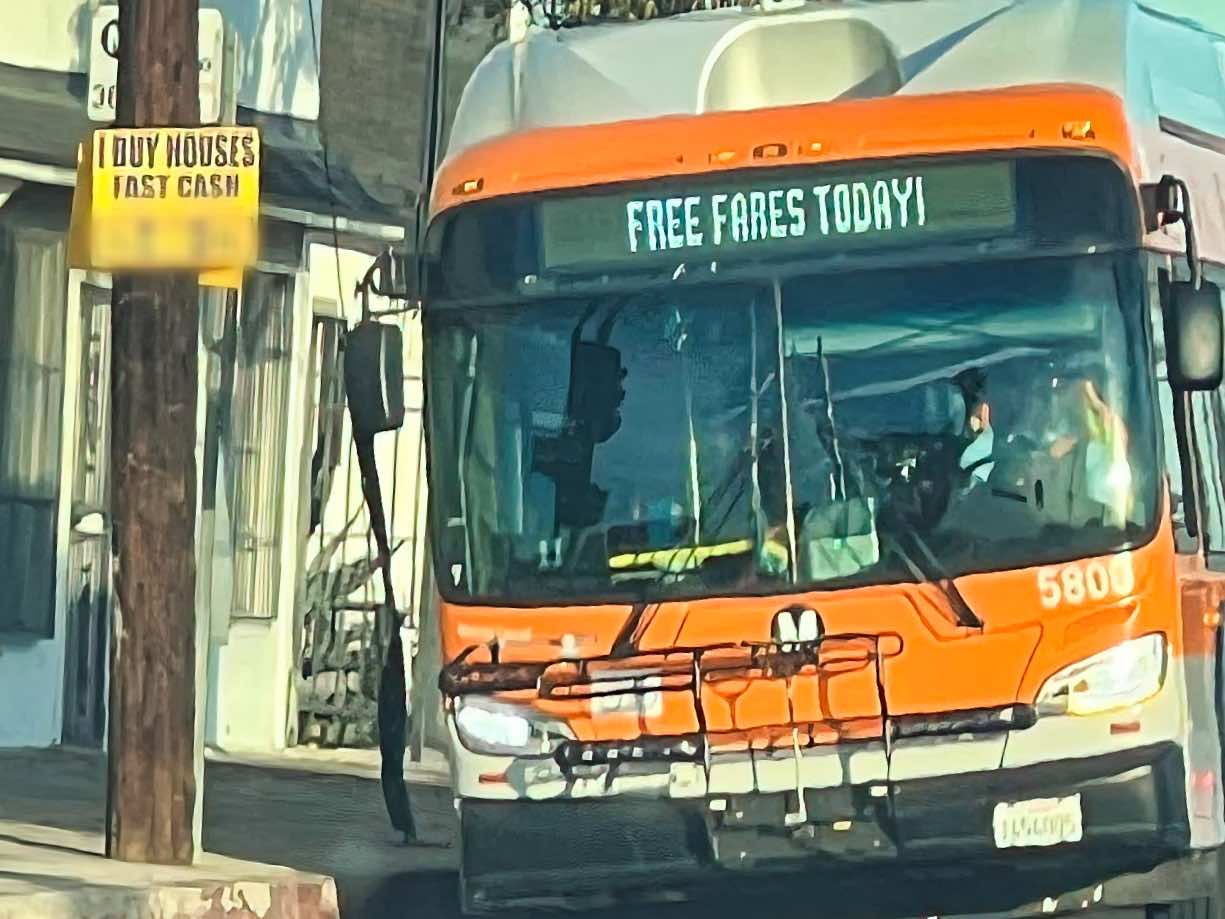For Metro’s Board Meeting on Thursday, January 23, 2025 at 10am, public comment can be given by telephone or in-person. The public comment participation call can be joined beginning at 9:55am:
Dial-in: 888-978-8818
English Access Code: 5647249#
Spanish Access Code: 7292892#
To give public comment on item 36, discussed below, enter #2 (pound two) when that item is taken up by the Board.
By Maria Patiño Gutierrez, Director of Policy and Advocacy, Equitable Development and Land Use
January 22, 2025
On January 7, 2025, California Governor Gavin Newsom issued a state of emergency for the Los Angeles region due to wildfires raging out of control in the Pacific Palisades and Altadena neighborhoods. Since then, these fires have killed more than two dozen people, destroyed more than 12,000 homes and businesses, and displaced hundreds of thousands of residents. As of this afternoon, the Eaton and Palisades fires have not been extinguished, and, unfortunately, a new fire has ignited in Los Angeles County near Castaic.
Metro Board Chair Janice Hahn’s January 10 decision to suspend fares on LA Metro region-wide has been a lifeline for those indirectly and directly dealing with the consequences of the fires. The fareless policy has alleviated both cost and logistical burdens for those dependent on public transportation because of this disaster.
We know the majority of LA Metro riders are low-income Angelenos who depend on public transit to access jobs, schools, medical care, grocery stores and other necessities. The economic devastation this disaster has wrought—burned businesses, lost jobs, and interruptions to employment due to closures—has meant these riders now have even less in their pockets to spend on the bus or train. For these reasons, SAJE calls on the LA Metro Board to extend its fareless transit program indefinitely. We also call on the Board to commission a study on the benefits fareless transit is bringing to regions affected by these fires, such as increased mobility, economic relief, and lessened traffic congestion and pollution.
For years, LA Metro riders have been asking for a universal fareless system. As was the case during the COVID-19 pandemic, which also spurred LA Metro to introduce a temporary fareless policy, these riders are now facing economic uncertainty at a time when they are solely reliant on public transit during an emergency. By extending the current fareless transit policy indefinitely, LA Metro has the opportunity to demonstrate that public transportation is a public good essential for community health and equity.
Learn more about the possibilities offered by fareless transit in our 2023 report, The Road to Transit Equity: The Case for Universal Transit in Los Angeles.

